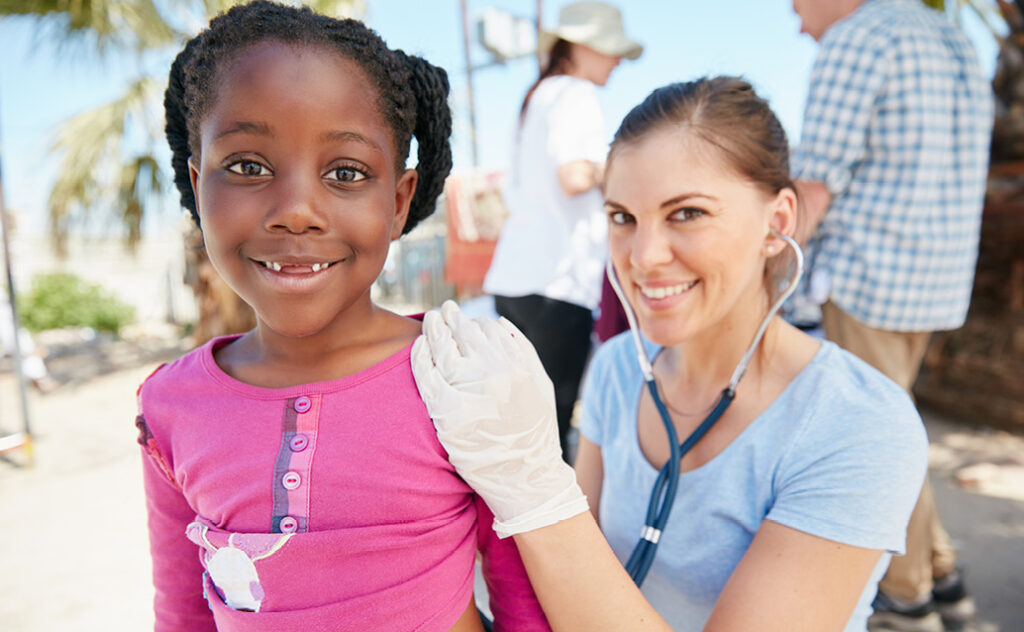
Public health addresses not only individual wellness but that of communities. To make the most meaningful impact on community wellbeing, it’s important to prioritize public health education and recognize its positive influence.
This type of information aims to prevent disease, prepare for emergencies, reduce health disparities and promote overall wellness for individuals and communities. Health-related service providers at the local, state, national and international levels are trained to not only act proactively but to respond to life-threatening emergencies like natural disasters, biological warfare attacks and infectious disease outbreaks.
Reducing health disparities is a significant challenge that public health professionals face, but there are countless opportunities to remedy this issue. This all comes to life through the power of health sciences and distributing information to diverse populations.
Why Public Health Education is Important
Because public health involves the wellness of communities, it’s important for public health professionals to understand trends in disease prevalence and mortality rates within a defined population.
Public health education is an essential component in ensuring that a community has the resources needed to promote healthy lifestyles. Health departments play a major role in distributing this information, but health educators are the ultimate advocates for public health. Community members are better able to take precautions after receiving current and accurate information about public health issues like infectious disease outbreaks or risk factors for developing chronic conditions.
Public health professionals have a profound opportunity to provide tremendous support to the medical system. Clinical health and public health relate to one another, but they are different. The public health system provides epidemiological reports, disease tracking, health data visualizations and public outreach to lessen the number of people who become sick or injured, in turn lowering the ultimate number of hospital or medical clinic patients.
How Public Health Education is Distributed
Information distribution is a primary goal for public health education. Health promotion that uses education enables people to make informed decisions regarding their health and quality of life. Tailoring educational resources to reach diverse communities and accounting for health equity can help to keep more people healthy and break down disparities.
Many different organizations and public health professionals share health information. Doctors and nurses provide health education, and government organizations like the Centers for Disease Control and Prevention (CDC) provide national information through initiatives and programs.
Educational institutions, nonprofit organizations and public health educators are also great sources for public health information. Public health educators, specifically, specialize in certain areas to provide more niche education.
Public health information is shared via conferences, courses and public service announcements. Some topics include:
- Injury and violence prevention
- Mental and behavioral health promotion
- Exercise and obesity prevention
- Chronic disease awareness and prevention
- Tobacco use and substance abuse prevention
- Maternal and infant health promotion
- Infectious disease prevention
How Public Health Education is Researched
Research plays a major role in public health education because it identifies the most recent findings and proven solutions to health problems. This allows public health professionals to develop and implement evidence-based methodologies that lead to community wellness.
Peer-reviewed research articles provide a solid foundation for strong public trust in the medical and scientific community. This type of research endures a process that checks for quality and validity. A public health educator is more likely to teach about best practices in disease prevention when the methods have been proven and reviewed by other qualified professionals in the medical and scientific community. Public health education must be backed by legitimate research findings to protect the health and safety of its consumers.
How to Get Started in Public Health
A career in public health education can look a few different ways. Just like with most fields, it’s important to grow specialized skills and education. Public health professionals can work in a variety of specialties including community health, epidemiology, environmental health, global health, behavioral science, public policy and more. Entry-level roles like community health workers and medical records specialists can often start their careers with a high-school diploma and on-the-job training. Health education credentialing is also a great place to start and even keep your skills fresh throughout your career. Many public health professionals earn these credentials through the Commission for Health Education (NCHEC).
Other roles like health educators, social and community service managers, environmental scientists and nutritionists need at least a bachelor’s degree in a health education program or public health education program. A public health education degree is the best approach to succeeding in this field because you’ll have the knowledge and skills you need to promote healthy living. Continuing education is usually needed for all occupations.
Below are some roles that require graduate school and the best-aligned corresponding programs offered at American College of Education (ACE), where you can pursue advanced public health education degrees fully online and on your schedule.
| Career Paths | ACE Program |
Epidemiologist | Master of Public Health: Offers training of the statistical, ethical, methodological and evidence-based best practices in public health |
| Data analyst | |
Public health professor | Doctor of Education in Public Health Education: Delves into research and facilitates the study of original topics/hypotheses within the field, developing expertise and thought leadership needed for advanced public health positions |
| Public health administrator | |
Community health leadership |
Beyond the programs listed above, ACE also offers an Ed.S. in Public Education, for those wishing to pursue advanced studies without the dissertation requirement, as well as a micro-credential in public health and health leadership, quick program that hones specific skills.
Resources for Public Health Education
Public health education is richly accessible, especially with resources available across the internet. Below are three great places to start:
| Link | Resource |
Society for Public Health Education (SOPHE) | Stay updated with the latest news and resources in public health through SOPHE, a nonprofit, independent professional association committed to equipping health promotion and education professionals. |
Centers for Disease Control and Prevention (CDC) | The CDC is a national service organization that aims to protect public health through science-based and data-driven research. |
World Health Organization (WHO) | The WHO leads global efforts to make health coverage more accessible and coordinates internationally to respond to health emergencies. |
Make a difference in public health education with the healthcare programs at American College of Education.

